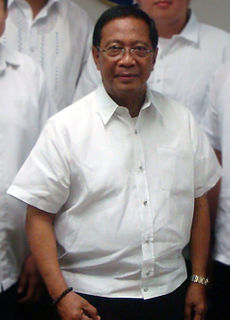A Quote by Grace Poe
I am deeply concerned about the impact of poverty on children because poverty can destroy their future and bind them to a life of misery.
Related Quotes
Poverty is a strange and elusive thing. ... I condemn poverty and I advocate it; poverty is simple and complex at once; it is a social phenomenon and a personal matter. Poverty is an elusive thing, and a paradoxical one. We need always to be thinking and writing about it, for if we are not among its victims its reality fades from us. We must talk about poverty because people insulated by their own comfort lose sight of it.
I strongly believe that we can create a poverty-free world, if we want to.... In that kind of world, [the] only place you can see poverty is in the museum. When school children will be on a tour of the poverty museum, they will be horrified to see the misery and indignity of human beings. They will blame their forefathers for tolerating this inhuman condition to continue in a massive way.
There are some people who say that they?re concerned only with poverty but not inequality. But I don?t think that is a sustainable thought. A lot of poverty is, in fact, inequality because of the connection between income and capability?having adequate resources to take part in the life of the community.
The economic benefits of investing in children have been extensively documented. Investing fully in children today will ensure the well-being and productivity of future generations for decades to come. By contrast, the physical, emotional and intellectual impairment that poverty inflicts on children canmean a lifetime of suffering and want - and a legacy of poverty for the next generation.
Seek the simplest in all things, in food, clothing, without being ashamed of poverty. For a great part of the world lives in poverty. Do not say, "I am the son of a rich man. It is shameful for me to be in poverty." Christ, your Heavenly Father, Who gave birth to you in the baptistery, is not in worldly riches. Rather he walked in poverty and had nowhere to lay His head.
I was a TV producer at a noncommercial station, and we were producing some good documentaries - on Head Start, on poverty. But I was struck by the children, and the damage that poverty was doing to them. I didn't think filming them was helping much, so I wondered how we could use TV for them, to teach them.
By repealing the Child Poverty Act, which forced governments to take real action to tackle child poverty, this government brings a proud chapter of British history to an undignified end. In future the government will measure child poverty not by looking at whether they have any money, but by looking at their so-called 'life chances.'
The notion that aid can alleviate systemic poverty, and has done so, is a myth. Millions in Africa are poorer today because of aid; misery and poverty have not ended but increased. Aid has been, and continues to be, an unmitigated political, economic, and humanitarian disaster for most parts of the developing world.


































